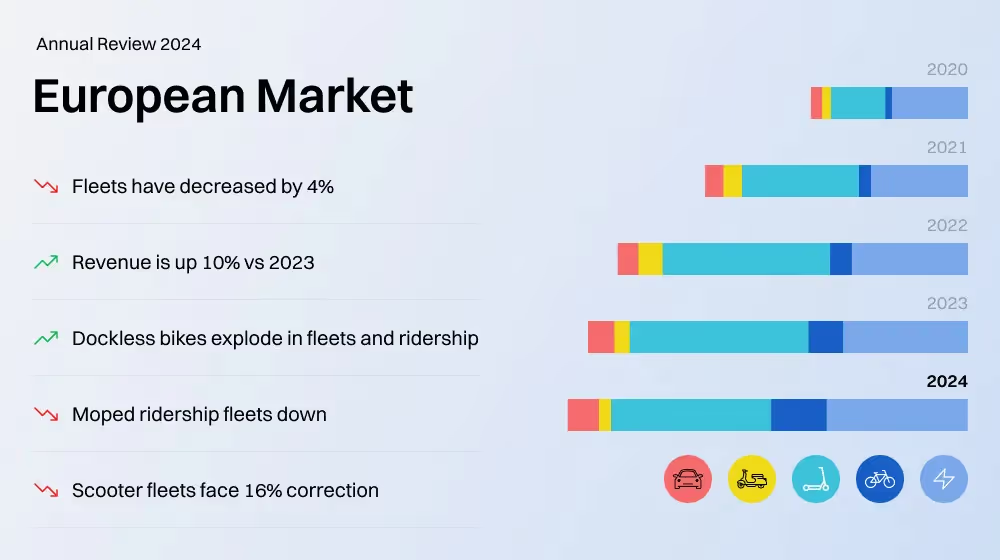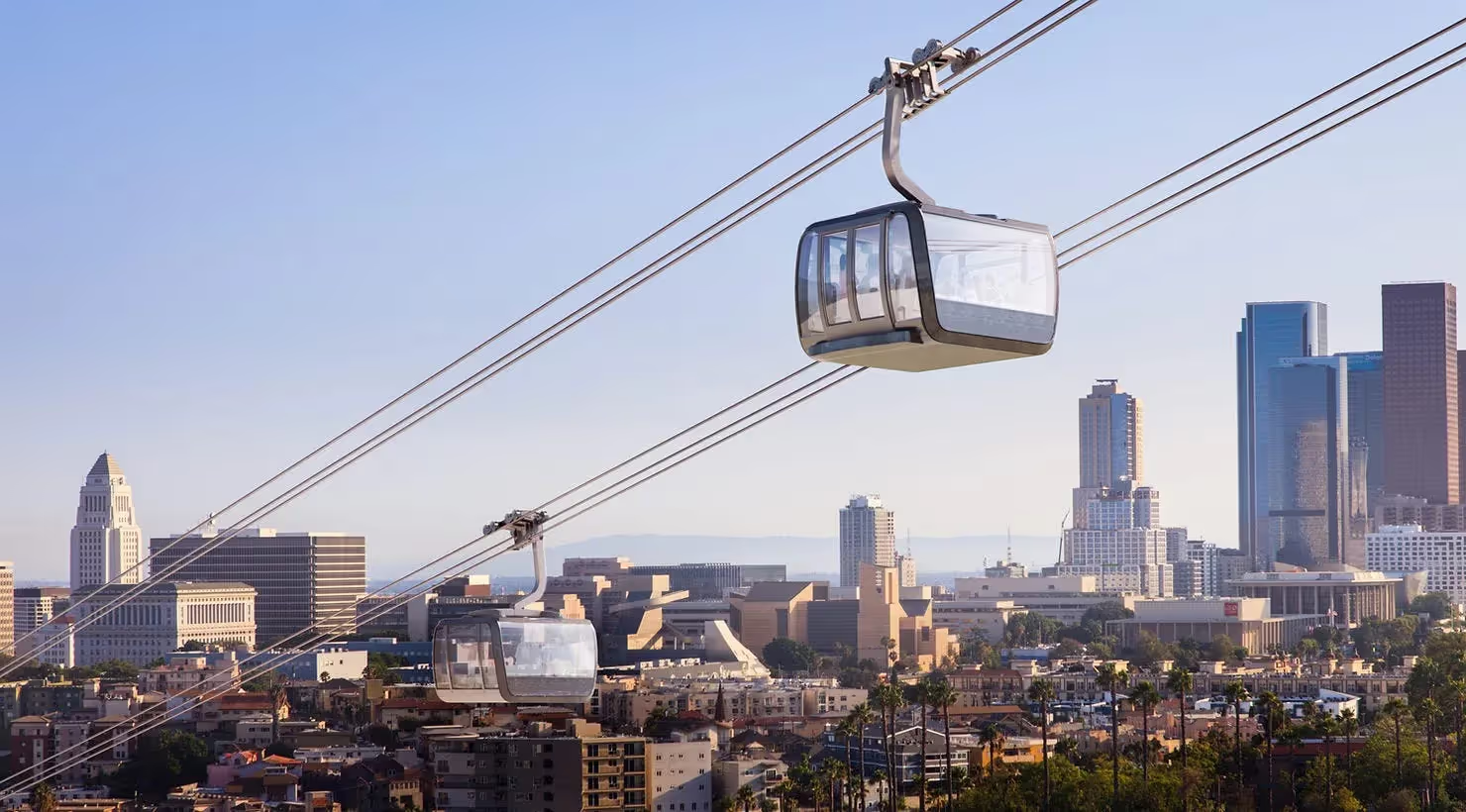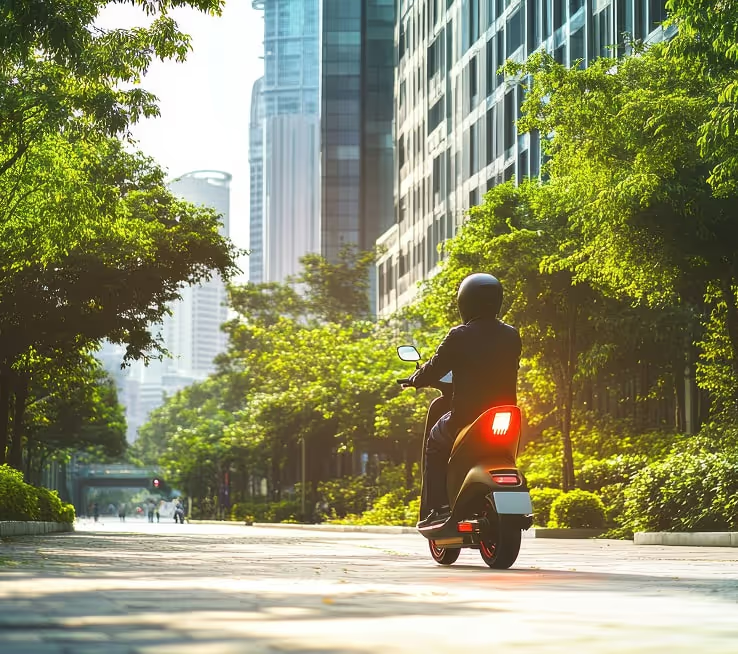The robotaxi battle

Autonomous vehicles are making big moves: Lyft prepares to launch its driverless ride-hailing service in Atlanta this summer and Waymo takes the first step toward integrating robotaxis at San Francisco International Airport. Meanwhile, shared mobility continues to rise—New York City and Atlanta have seen e-scooter ridership skyrocket, while European bike-sharing services are booming despite a decline in overall fleet numbers.
On the EV front, Munich-based startup Pulsetrain is promising to extend battery life by up to 80%, while Chinese automaker BYD claims its new sedan can charge 248 miles of range in just five minutes — though only if its new charging network delivers as promised. In the U.S., transit agencies have expanded their fleets of zero-emission buses, though federal support may be in jeopardy as the Trump administration looks to dismantle climate programs. And speaking of Trump, can New York Gov. Kathy Hochul really convince him to let congestion pricing stand? We have our doubts, so hopefully she doesn’t even need his approval.
We're also just 5 weeks away from CoMotion MIAMI '25, New Reality, New Opportunities. Join mobility’s most influential innovators and thought-leaders. Snag your pass now and secure Early Bird savings.
What you need to know
Lyft launches robotaxis in Atlanta: Lyft plans to launch its robotaxi service in Atlanta this summer, offering autonomous Toyota Sienna minivans equipped with May Mobility's technology. This initiative is part of Lyft's broader strategy to integrate self-driving vehicles into its platform, with plans to expand to Dallas next year using Mobileye's technology and further deployments in other cities.

Why is it always Atlanta? Atlanta happens to be the city where Waymo just began offering driverless rides through the Uber app. The two companies have also been offering driverless rides in Austin since October. These sunbelt metropolises are compelling markets for the young robotaxi industry to prove itself. The states take a lax approach to AV regulation and the lack of strong public transportation means more people rely on ride-hailing.
Waymo gets into airports: Waymo secures a temporary 30-day permit to manually map roadways at San Francisco International Airport, marking a significant step toward integrating its robotaxi services with airport operations. This permit, effective from March 14, requires human drivers to operate the vehicles and limits mapping to two vehicles at a time.

A boost for battery lifespan: Pulsetrain, a Munich-based startup, raises €6.1 million in seed funding to increase the life expectancies of EV batteries. Its technology integrates the Battery Management System (BMS), inverter, and charging electronics into a single "In-Battery" solution, potentially extending battery lifespan by up to 80% — equivalent to lasting 18 years instead of 10, while reducing thermal risks.
Can Hochul work with Trump on congestion pricing? After the Trump administration extends the deadline for New York to shut down its congestion pricing program, New York Gov. Kathy Hochul says she believes she can get fellow New Yorker Donald Trump to understand the value of keeping the toll in place. We’re not convinced. Hochul also insists the feds lack the authority to kill it …
Can a BYD really charge in five minutes? Chinese auto giant BYD claims that its new Han L Sedan can get 248 miles of range from a five-minute charge. Is it true? Perhaps technically, but not on most existing chargers. However, BYD says it is going to begin deploying a network of new chargers across China so that its customers can charge their car in the time it takes to fill up a gas tank.

Just 5 weeks to go!!
Mobility’s most influential innovators and thought-leaders will be coming to the Magic City on April 29-30 for CoMotion MIAMI ‘25.
Hear from Miami-Dade County Mayor, Daniella Levine Cava, maritime mobility pioneer REGENT CEO & Co-Founder, Billy Thalheimer, HNTB Senior Vice President, Beth Kigel, and FIFA World Cup, Senior Transport Integration Manager, Tania Mahan, and many more. Check out the latest confirmed speakers.
Public and private sector leaders will explore hot topics: Autonomy & the Urban Experience, Next-Gen Maritime Mobility and Logistics, Emerging Funding Models for Investment, Policy Reform for New Mobility, and more. View the full program.
Act fast — Secure your Early Bird discount now and save up to $425.
Scooter use skyrockets in NYC & Atlanta: Lime's e-scooter ridership in New York City reaches new heights after the city expands its scooter pilot from the Bronx into eastern Queens. In February alone, 12,693 riders logged 99,427 trips, a 79% increase from the same month in 2024 and a 325% jump from 2023. Lime similarly shattered records in Atlanta, where it recorded 118,000 trips in February.

Shared mobility rises in Europe: An analysis of 30 European countries by Fluctuo shows a 5% increase in shared mobility use last year despite a 4% decline in vehicles. The 940,000 vehicles generated 640 million trips and $2.1 billion of revenue. Paris’s shared-bike service alone generated 49 million trips, making it the continent’s most popular program. London’s bike-sharing program led to 29 million trips. Scooter use dropped 9%, however.
Big surge in zero-emission buses: U.S. transit agencies have funded, ordered, delivered, or are operating 7,026 full-size zero-emission buses, a 14% increase from the previous year. Battery-electric buses remain the predominant choice, though fuel-cell electric buses have seen a notable 55% growth over the 2023 count. It’s a good bet that progress will dramatically slow, however, as the Trump administration tries to kill every climate program it can.
China’s ramps up e-bike subsidies: Since the beginning of the year China has spent $140 million on an e-bike trade-in program, which offers buyers discounts on new e-bikes when they turn in an old one. Since its launch in September, just over 3 million e-bikes have been sold across the country.
Partner Content
.gif)
Join us at Curbivore: April 10-11 in Downtown LA
Curbivore is a call to rethink urban delivery, mobility, and civic tech. As commerce rapidly moves to the curb, Curbivore is thrilled to announce that we are returning to DTLA on April 10 & 11 – giving the mobility community a chance to see, touch and feel the technology that's reshaping our future, as well as meet with the civic leaders and forward-thinking entrepreneurs that are ensuring nobody is left behind as we reshape our transportation systems, cities and businesses for the better. This gathering is not only a call to rethink our streets – it's a celebration of the amazing organizations making that transition possible, and a chance to sample some of the best street food in the country and kick the tires of new mobility / delivery vehicles and technology!
What we're reading

Fly me out to the ballgame: Persons of Infrastructure tells the story behind the high-speed aerial gondola being built that can move 10,000 people an hour from Union Station to Dodger Stadium, hopefully eliminating 3,000 cars from the parking lot during baseball games or the many other big events held at the venue. As David Grannis, executive director of Zero Emissions Transit, tells it, the city is finally making good on a 67-year promise to connect Dodger Stadium to public transit.
Progressive planning in conservative communities: In a column for CityLab, career urban planner Todd Litman argues that reframing progressive transportation policies to highlight their alignment with conservative ideals—such as fiscal responsibility, reduced government intervention, and enhanced personal freedom—can garner broader support across the political spectrum. If you’re involved in planning or politics yourself, you may want to check out this report, Responsive Planning in Ideologically Conservative Communities.

